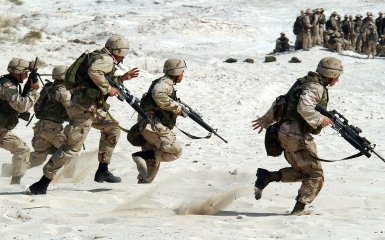The US and South Korea began joint military exercises on August 19. The goal is to strengthen defense capabilities against a nuclear-armed North Korea.
Points of attention
- The program includes computer-based war games and field training aimed at preparing for North Korean threats such as missile strikes and cyber attacks.
- North Korea's possible response to the drills could be aggressive action, given its recent claims of expanding its nuclear program and transferring nuclear weapons launchers.
- Russia and North Korea are forming a nuclear alliance, which poses a threat to the West, due to the possible supply of technology and weapons between the countries.
What is known about the military exercises of the United States and South Korea
As noted, the annual exercises take place against the background of growing tensions on the Korean Peninsula due to the intensification of North Korean armed demonstrations and joint maneuvers between the United States and South Korea.
The Ulchi Freedom Shield training, which will last 11 days, includes computer war games and more than 40 types of field training. The program focuses on preparing for North Korean threats, including missile strikes, GPS jamming and cyber attacks.
North Korea calls these maneuvers "provocative" and justifies its nuclear ambitions as necessary to maintain a "deterrent factor".
19,000 South Korean troops are participating in the exercises, while civil defense and evacuation exercises are taking place in parallel. The number of US troops is not disclosed, but it is known that the US has increased the deployment of strategic assets in the region.
Pyongyang may respond to these exercises with aggressive actions, given Kim Jong-un's recent statements about the expansion of the nuclear program and the demonstrative transfer of 250 launchers for nuclear weapons to the troops, the publication notes.
Russia and North Korea are forming a nuclear alliance against the West
Earlier, Western journalists noted that Putin's visit to Pyongyang is a sign of the formation of a nuclear alliance between Russia and North Korea hostile to Western countries.
North Korea's supply of artillery shells and missiles to Russia is only part of the problems for the West from this alliance.
The key question remains what North Korea gets from Russia in return.
It is highly unlikely that Kim Jong-un would greet Putin so lavishly just for the promise of food and fuel. Kim Jong-un wants advanced communication systems, nuclear submarine technology, military satellite technology and advanced intercontinental ballistic missile technology, suggests Victor Cha, an analyst at the Washington-based Center for Strategic and International Studies.
Journalists of the publication draw attention to the fact that Russia's assistance to North Korea in improving the ballistic missile program for submarines is of particular concern.
It is noted that it may allow the North Korean dictator Kim Jong-un to deliver an unexpected first strike with conventional or missiles with nuclear warheads.
In addition, with such weapons, it guarantees itself the possibility of a powerful retaliatory strike if the DPRK's military capabilities on the ground are destroyed.



